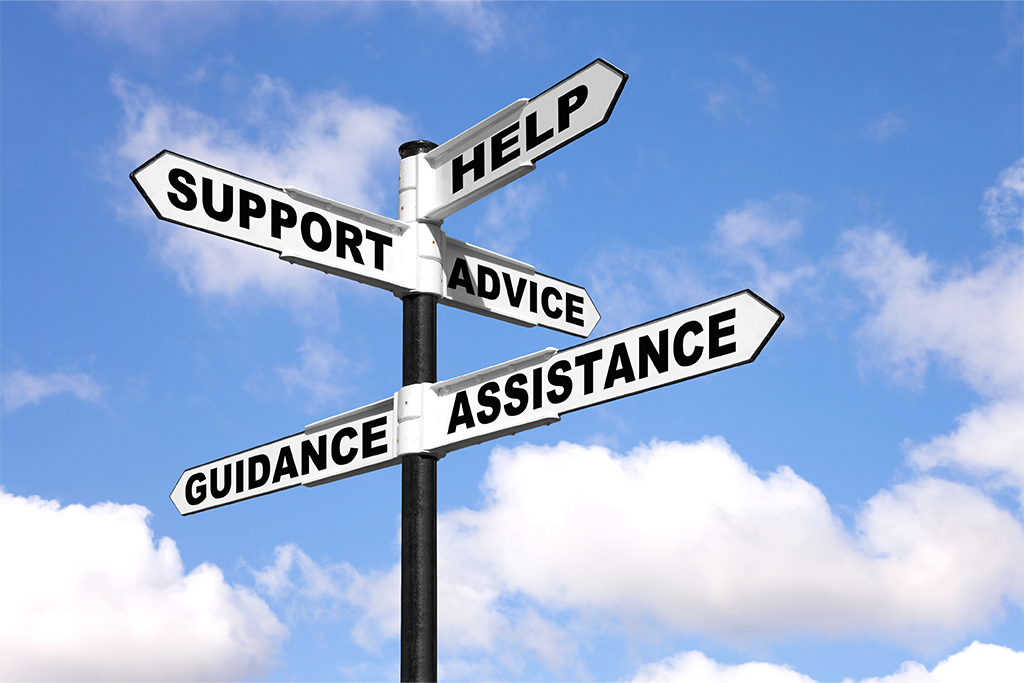
Protecting your home and contents
February 10, 2020
Tax deductions for home office expenses
May 20, 2020In tough economic times, there are some important actions you can take to help shore up your personal finances. Here’s our top ten:
- Doing a Family Budget
Preparing a family budget is always a smart move, but economic conditions like these should make a budget mandatory. This requires some effort, but doing it properly can give you certainty and peace of mind. A budget can help you identify areas where you can reduce your personal expenses, direct money to savings or reduce your mortgage and other debts. A budget also tells you how much money to put aside regularly for bigger expenses like car registrations, school fees and insurance. It doesn’t matter whether you use pen and paper, a spreadsheet or an online tool like our budget calculator, it just matters that you do it. - Shopping around for the Best Prices
Make sure you shop around for the most competitive prices. Sadly, a minority of businesses will try to take advantage of consumers by manipulating the price of essential items. For example, we’ve seen the price of some hand-wash brands increasing by 200% and certain petrol retailers maintaining high prices when the world-wide wholesale price has substantially fallen. - Managing Debts by talking to Lenders
If you are concerned about your ability to meet repayments on debts such as house mortgages, personal loans, car loans and credit cards, approach your lender and seek assistance. Most lenders have announced new and quite generous special terms and conditions for those facing financial hardship. Provided you can demonstrate your deteriorating financial position, you will almost certainly qualify for a special arrangement, at a minimum in the form of deferral of payments until the crisis has passed and you’re back on your feet. You will achieve the best result if you approach the lender proactively. The worst thing you can do is fail to pay without talking first to the lender, thereby going into default on your debts. Defaulting without notice may have a bad impact on your credit rating which is one of your most valuable financial credentials. That might not seem important now, but it will be when the current financial crisis is over. Helpful information can be found at www.ausbanking.org.au or from the relevant financial institution. - Varying Rental Arrangements
If you find yourself in a position where you can’t meet your private home rental obligations, ask your landlord for assistance in the form of a rent decrease, a deferral or even a holiday from paying at all. If you’re receiving Defence rental assistance, make sure that you advise the department of your new temporary arrangements with the landlord. If your partner runs a small business from leased commercial premises and the business is suffering financially, talk with the landlord about a rental holiday or reduction (preferably not just a deferral if the business is severely suffering, otherwise you’ll be landed with a big deferred debt when conditions improve). Make sure you keep abreast of imminent federal and state government announcements about landlords and tenants regulations that will assist with the management of cash-flow during the crisis.
If you’re a landlord (say an owner of an investment property), the new laws and regulations will apply to you. These new arrangements are currently unfolding, so it will be important to stay informed through government websites, the media, your managing agent or your professional advisers. The reality is that it is in everyone’s interests, landlords and tenants alike, that compromises are reached. After all, it helps no one if at the end of this, there is a severe shortage of financially viable private and business tenants to rent the thousands of properties that are likely to be on offer.
- Negotiating School fees
For most parents, their children’s education is a top priority, if not the most important one. Therefore, it will be important for parents to not disrupt their children’s education any more than it has been to date as a result of temporary school closures. In the case of private schools, their financial viability and their students’ education experience is directly linked to the ability of parents to keep their children at those schools so that the fees continue to be paid. In times of financial crisis, many schools will offer assistance to parents, often in the form of temporary fee reductions and deferrals. Don’t assume that suitable arrangements can’t or won’t be made because keeping students at their chosen educational institution is as important to the schools as it is to parents and students alike.
- Continuing Child Care
It may be that while you have removed your child from day care for health reasons, you may still be required to pay your daily care fee in order to keep your place. Under government rules your child can be absent for 42 days (or longer under certain circumstances) but this does not mean your commercial provider will not continue to charge fees. For families who are impacted by financial hardship, consider talking with your provider to seek their assistance or consider updating your family income details with Centrelink through the MyGov portal to reflect your current financial situation as you may be eligible for a higher amount of Child Care Subsidy. There is more information about Child Care subsidies, the Family Tax Benefit and related payments at www.servicesaustralia.gov.au and www.education.gov.au. - Accessing Superannuation
The government has announced that a person who has lost their job as a result of the COVID-19 outbreak may apply for early release of their superannuation. This will be a maximum of $20,000, up to $10,000 in withdrawals from their superannuation account up until 30 June 2020 and then further withdrawals up to $10,000 from 1 July 2020 to 24 September 2020. The payments will be tax free and any Centrelink or Veterans’ Affairs payment you receive will not be affected by the payments.
However, before you consider applying for the release of your superannuation, consider consolidating multiple superannuation accounts that you may have accumulated over the years into one account. There are more details on how to do that at www.moneysmart.gov.au. Also carefully consider whether you really need to access your superannuation at all. Doing so will certainly provide access to some much needed cash in hard times, but it may also mean that your ultimate superannuation benefit may be significantly reduced because that money will no longer be growing in the fund for your retirement.
There is a useful summary of the proposed early release arrangements at www.ato.gov.au. If you have specific questions about your account with military superannuation, we recommend that you should consult the Commonwealth Superannuation Corporation (www.csc.gov.au). If you need any assistance in so doing, in knowing what questions to ask or are uncertain about the right person to talk to about your superannuation, don’t hesitate to contact the ADF Financial Services Consumer Centre “Contact Us” at www.adfconsumer.gov.au. - Avoiding On-line Gambling
If you’re stuck at home over the next few months, resist the temptation to engage in on-line gambling. You can rest assured that gambling in any form, especially on line, is a guaranteed way to lose a great deal of money and to come out of your seclusion in a much poorer state that you entered it. You might conclude that the opportunities for gambling on conventional sports will have reduced considerably in recent weeks. So they have, however, they are quickly being replaced by more exotic opportunities, especially on line through social media.
If you or someone you care about is, or is at risk of, suffering harm due to gambling, help is available. Free, professional and confidential counselling, information and support is available 24 hours a day, 7 days a week from the National Gambling Helpline on 1800 858 858. There are an extensive range of information and resources, including email and chat counselling services available at gambling help online. - Accessing Government Support in the Crisis
Make sure you understand and consider applying for the considerable financial support that is currently available to individuals and households. There is extensive authoritative information on the proposed benefits at treasury.gov.au. Please remember that the arrangements are evolving every day at present, so make sure you check into that site and others on a regular basis for updates. - Got a Problem? Talk to the ADF Financial Services Consumer Centre
The Centre has been educating and helping ADF members to navigate their personal finances since 2006. That includes throughout the Global Financial Crisis of 2007-8. Therefore, at a minimum we recommend that you and your family should review the Centre’s website (www.adfconsumer.gov.au) which includes a wide range of educational material, including short films, which are especially designed for ADF members.
If you are in need of financial education or guidance, access to free financial counselling due to financial hardship or independent personal financial advice, don’t hesitate to contact us. We have a small team of highly qualified professionals with extensive knowledge and access to a large network of professional people outside of Defence who are more than happy to offer their counsel and assistance, either free of charge or on a fee paying basis depending on your personal circumstances.








